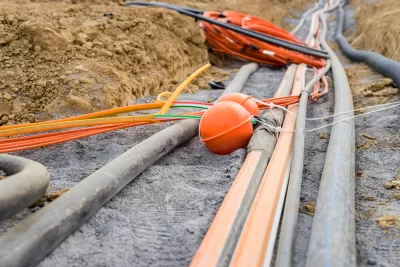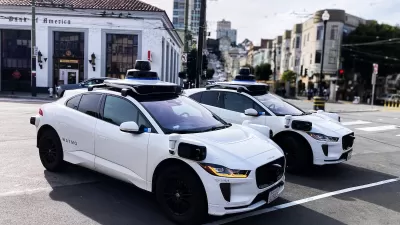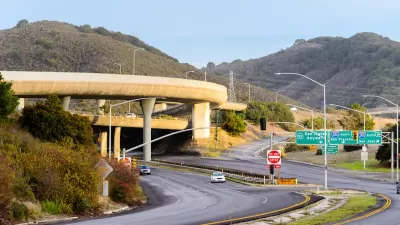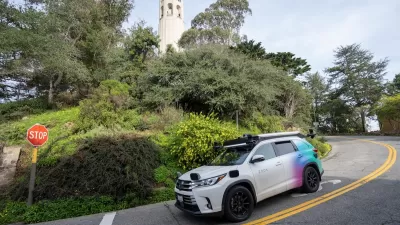The future of mobility depends on having a comprehensive, nationwide broadband network capable of supporting new transportation technologies and regulatory needs.

An article by Rudy Salo highlights the importance of broadband infrastructure, which will receive $65 billion in funding from the Infrastructure Investment and Jobs Act. Far from just home internet speeds, Salo writes that broadband quality affects many aspects of modern life, including transportation. "Better broadband capabilities affect highway operations, including through applications centrally managing signal systems, variable speed limits, and cameras that improve incident response and timing, among others."
According to Salo, broadband is also required to connect autonomous vehicles to each other and the road they're driving on, which calls for a robust system of infrastructure to ensure seamless communication and keep passengers and pedestrians safe in the age of self-driving cars.
Salo also highlights the privacy concerns inherent in the massive amounts of data that users will—and already do—provide to the tech companies that power their phones, cars, and smart home gadgets, cautioning against data monopolies. "If left unregulated, there is danger that control over and use of user data by a combination of big auto and big tech could lead to monopolization and abuse. U.S. consumer-commuters could be at the mercy of conglomerates that abuse their power and limit consumer-commuters to minimal choices or use the data they control to manipulate choices."
FULL STORY: Why The Future Of Transportation Needs A National Investment In Broadband Infrastructure

Study: Maui’s Plan to Convert Vacation Rentals to Long-Term Housing Could Cause Nearly $1 Billion Economic Loss
The plan would reduce visitor accommodation by 25,% resulting in 1,900 jobs lost.

North Texas Transit Leaders Tout Benefits of TOD for Growing Region
At a summit focused on transit-oriented development, policymakers discussed how North Texas’ expanded light rail system can serve as a tool for economic growth.

Why Should We Subsidize Public Transportation?
Many public transit agencies face financial stress due to rising costs, declining fare revenue, and declining subsidies. Transit advocates must provide a strong business case for increasing public transit funding.

How to Make US Trains Faster
Changes to boarding platforms and a switch to electric trains could improve U.S. passenger rail service without the added cost of high-speed rail.

Columbia’s Revitalized ‘Loop’ Is a Hub for Local Entrepreneurs
A focus on small businesses is helping a commercial corridor in Columbia, Missouri thrive.

Invasive Insect Threatens Minnesota’s Ash Forests
The Emerald Ash Borer is a rapidly spreading invasive pest threatening Minnesota’s ash trees, and homeowners are encouraged to plant diverse replacement species, avoid moving ash firewood, and monitor for signs of infestation.
Urban Design for Planners 1: Software Tools
This six-course series explores essential urban design concepts using open source software and equips planners with the tools they need to participate fully in the urban design process.
Planning for Universal Design
Learn the tools for implementing Universal Design in planning regulations.
City of Santa Clarita
Ascent Environmental
Institute for Housing and Urban Development Studies (IHS)
City of Grandview
Harvard GSD Executive Education
Toledo-Lucas County Plan Commissions
Salt Lake City
NYU Wagner Graduate School of Public Service





























